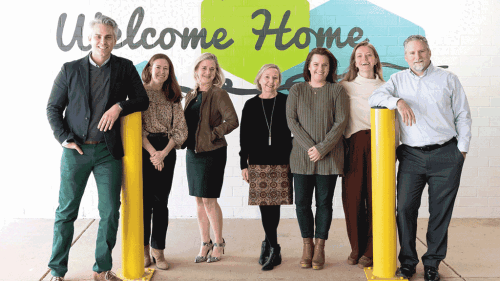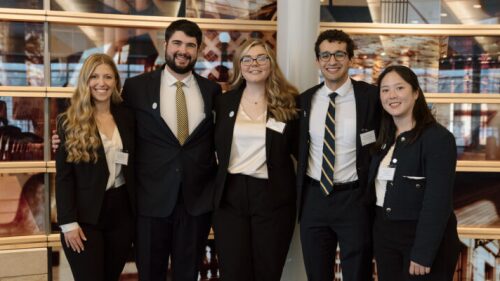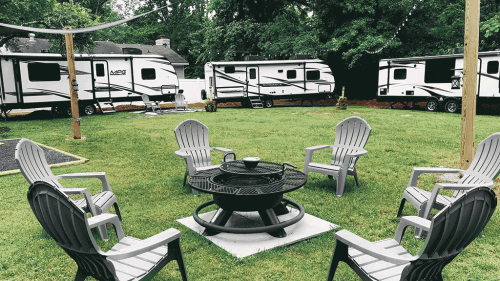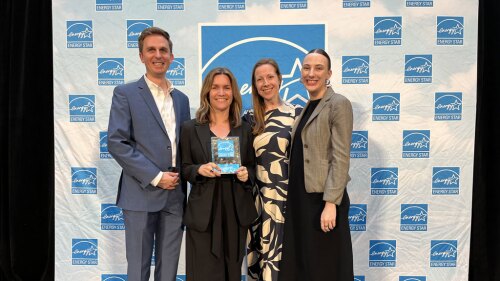In the global competition for corporate headquarters, a 255-acre (103 ha) project anchored by an open-air urban village in Plano, Texas, is landing some big names. Toyota, FedEx, JPMorgan Chase, and Liberty Mutual are among the companies building offices in the project, which includes a 15-story hotel, a 55,000-square-foot (5,100 sq m) food hall, and more than 1,000 residential units.
One of the largest eat/work/play/live developments in Texas, the $3 billion project is attracting companies by focusing on the interests of their generation X and millennial employees, says Fehmi Karahan, chief executive of the Karahan Companies, the master developer.
“Human resource departments are involved in the decision-making process,” Karahan says. “They were emphasizing being in the right location for their employees.”
Legacy West is located at the intersection of two highways, Dallas North Tollway and State Highway 121, about 20 minutes from Dallas/Fort Worth International Airport (DFW). The land is part of a 400-acre (162 ha) parcel purchased in 1987 by retailer JCPenney. The company built a corporate headquarters on 120 acres (49 ha), but left the rest of the land as greenfield for agriculture and grazing cows.
In 2014, JCPenney put the land up for bid, attracting interest from several national developers. Rather than buying the land outright, Karahan’s offer made JCPenney a partner in the project, creating a new entity to develop the land—along with developer KDC and apartment specialist Columbus Realty, which was cofounded by former Dallas Cowboys quarterback Roger Staubach.
Karahan had developed the Legacy Town Center, a 168-acre (68 ha) master-planned mixed-use development, across the highway from the Legacy West site. “My involvement with this land goes back to 18 years ago when I first eyed the property,” he says.
The city of Plano also had been eyeing the land, which was zoned for corporate headquarters. The city was eager to attract new companies and more jobs. For Legacy West, the city offered companies cash incentives for job creation, tax abatement, and a willingness to develop infrastructure to support the project. That included realigning roads and improving utility connections. “The city has always tried to stay flexible,” says Phyllis Jarrell, Plano’s former director of special projects, who now works as a consultant.
The city created the special projects post in 2014 to specifically focus on large-scale projects such as Legacy West. “It gave companies and big developers a single point of contact,” says Peter Braster, the current director of special projects. “They don’t have to guess who can give them an answer.”
But it was the location and design of the project that attracted the international companies, Braster says. Companies these days do not want a typical corporate headquarters that might be isolated and self-contained, he says.
“It’s driven by needs and wishes of future employees,” Braster says. “They were not looking for a traditional suburban campus.”
The project’s design also fit the city’s goals of growing by creating higher-density developments, including a mix of housing options. “We did not want to see isolated residential,” Jarrell says.
For Toyota, which is building its North American headquarters on 100 acres (40 ha) in Legacy West, Plano offered a variety of advantages, “including the proximity to major roadways and airports and a diversity of housing options within a short distance to our future campus,” says Steven Curtis, the vice president of communications.
Housing and the connection to DFW also were important elements for FedEx. “A key factor in the decision on Legacy West was that the vast majority of our team members live within a ten-mile [16 km] radius of the new campus,” says a FedEx spokeswoman.
The Legacy West master plan also offered the companies flexibility in designing their facilities. While Toyota is developing a campus-like environment with seven mid-rise buildings, Liberty Mutual is erecting two 19-story towers on top of seven levels of parking, with 1.1 million square feet (102,000 sq m), and JPMorgan Chase is building 1.4 million square feet (130,000 sq m) of office space in six buildings.
All the different elements are connected by more than eight acres (3.2 ha) of public parks and trails. “The walkability link between all that is the key,” Karahan says. “The first question I often get is, ‘How many minutes’ walk from my office is it to the food hall?’ ”
The master plan for the 38-acre (15 ha), 415,000-square-foot (38,600 sq m) open-air retail district, developed by Gensler, includes a mix of residential, boutique offices, a microbrewery, and a beer garden for live outdoor shows. More than 85 percent of the retail and restaurant space has already been leased, Karahan says. Tenants include Dean & Deluca, the upscale grocer; Tommy Bahama; Del Frisco’s Double Eagle Steakhouse; and True Food Kitchen.
Office space in the project is attracting some of the top rates in the area, says Chelby Sanders, vice president of CBRE Transaction Advisory Services in Dallas. “There is demand to be in Legacy West and clearly that will demand some of the highest rates,” she says. For any prospective tenants, the success of Karahan’s earlier complex, the Legacy Town Center, “took the risk away,” she says.
The first phase of the residential component—a four-story apartment complex with more than 600 units—is nearing completion, with rates starting at $1,065 a month for a one-bedroom unit. The residential portion of the project includes a 30-story apartment tower and a 24-story luxury condominium tower with 88 units. About 25 percent of the condos have been sold, the developer says. Prices for condos start at $650,000, according to the developer.
The density of the project will lower the costs of providing services and make the potential for mass transportation more “practical,” in an area known for its reliance on superhighways, Braster says. The city is launching a transportation study to explore ways to better connect the diverse elements of the project. “What we don’t know now is where the demand will be,” he says.
Although it has been only two years since the land deal was completed, the project is almost halfway complete. The first retail shops are expected to open later this year in the village, and Toyota is scheduled to open its campus in 2017.








